New York City proving to be a growing basketball pipeline for coaches and scouts
It’s late October in 2017, a few hours before the Nets host LeBron James and the Cavs at Barclays Center.
Two guys from Prospect Heights are headed to the game that night. They take the short walk from their block to the arena.
Along the way, they pass the stores, streetlights and sidewalks that they’ve seen thousands of times over the years.
But there’s something different about this particular trip.
“We're in suits, walking over from the block and we’re just smiling,” one of the men says. “We look at each other like, ‘Can you believe this, man?’”
They stopped briefly to take in the enormity of the moment.
“And then we gave each other a pound and just went to work.”
Work that night for the two men -- Koby Altman and Anton Marchand -- was at Barclays Center.
Altman, the Cavs’ GM, and Marchand, the club’s lead amateur scout, were at the arena to spend time around the team at the start of a two-game road trip. Altman had taken over as GM a few months earlier. He hired Marchand a few weeks into the job.
Marchand’s addition may have fallen under the radar amid Kyrie Irving’s trade request and David Griffin’s departure. But in New York City basketball circles, it was a big moment.
Marchand’s hire in Cleveland was the latest example of a burgeoning local trend: New York City natives joining NBA front offices, coaching staffs and NCAA coaching staffs in growing numbers. That trend has continued this season in both the NBA and college basketball. And if recent history is any indication, the movement won’t slow down any time soon.
“It’s turned into a pipeline,” Marchand says.
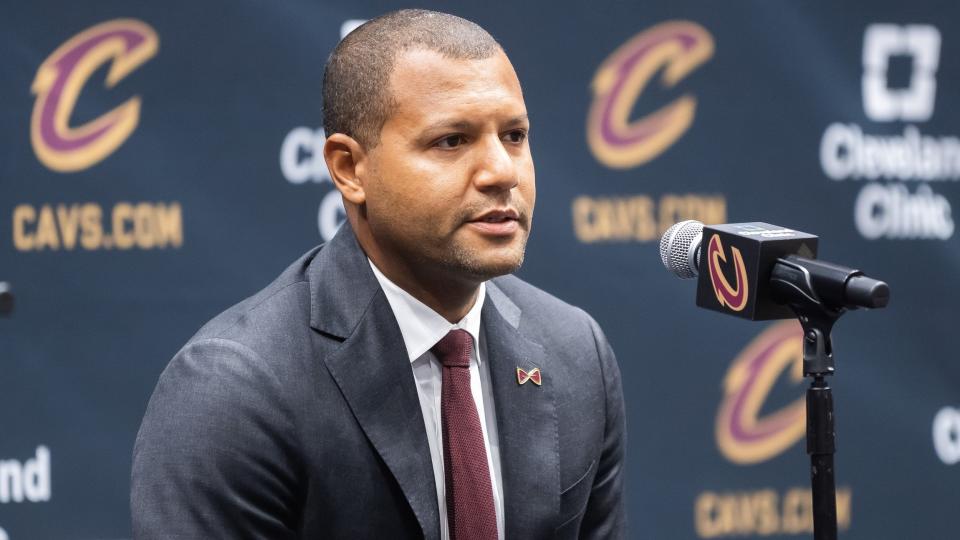
For a long time, the basketball pipeline in NYC was reserved for players. Top high school prospects were funneled to the best NCAA programs and, eventually, the NBA.
More recently, the number of elite prospects out of NYC has declined. But the amount of front-office members, scouts and coaches from the Big Apple has only grown.
One of the strongest NYC pipeline for execs and coaches stems from Brooklyn’s Prospect Heights neighborhood. More specifically, two blocks east of Barclays Center at the Conrade McRae basketball courts.
It was there that Marchand -- the current Cavs scout -- ran the Conrad McCrae Basketball Tournament. The weekend Summer League was a draw for both youth players and college and pro coaches/players looking for their next career opportunity.
Altman worked alongside Marchand and his partners Troy Lemond and Cleon Hyde to run the tournament. Kyle Neptune, the head coach at Villanova, worked the tournament as well. Kimani Young (top assistant at UConn) ran the tournament’s girls division. Mike Boynton, the former head coach of Oklahoma State and now a top assistant at Michigan, spent a lot time at Dean Street. So did Adrian Autry (Syracuse head coach and roommate/teammate of McRae’s at Syracuse). Omar Cook (Cavs assistant coach), Tre Morton (Fordham assistant coach) and James Barrett (Oklahoma State assistant) were regulars.
“It was a hub not only for games,” Marchand says. “It was also a hub for basketball people.”
Marchand ran day-to-day operations for the tournament out of his office at Sony Music Entertainment. He worked at Sony under famed executive Steve Stoute. Marchand’s sister, Foxy Brown, was signed to the label (Stoute tells a great story involving Marchand and Kobe Bryant at the 4:48 mark of this interview with Shannon Sharpe).
The tournament was a labor of love for Marchand; he grew up with McRae in Prospect Heights and said the late basketball star was a leader in his peer group. The tournament was also a natural fit for Marchand; the music exec starred at Bishop Loughlin High School and played in college under Bill Van Gundy (Genesee Community College) and Stan Van Gundy (UMass Lowell).
At the time, Marchand was transitioning out of the music business. Being around young players/coaches like Neptune and Altman energized him.
“Those guys were either finishing their college careers or pro careers; they're trying to figure out their way in basketball,” Marchand says. “We were all figuring it out at the same time.”
Marchand wasn’t sure what was next for him. But he knew his relationships throughout basketball and the music business could benefit the young guys at Dean Street.
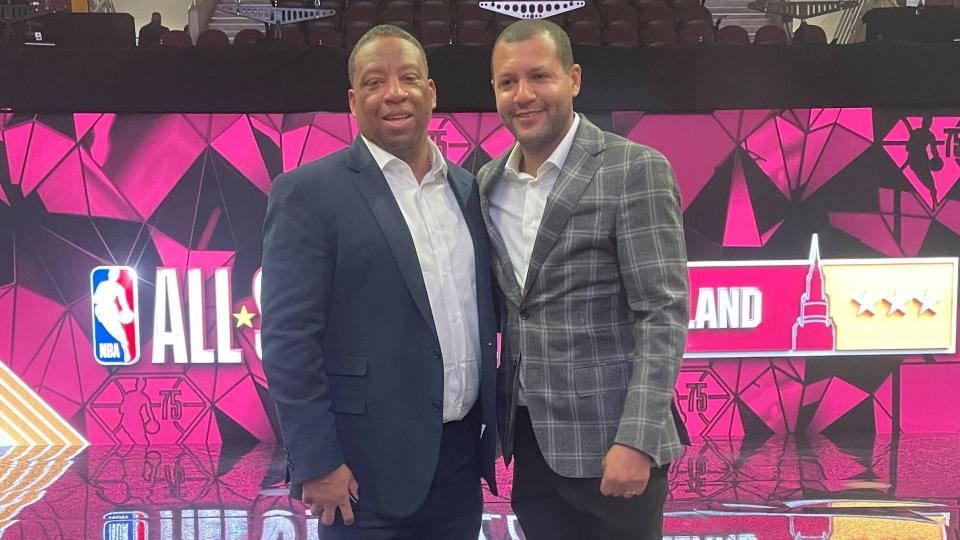
Jay-Z was on the phone. He was calling Marchand to talk about marketing his new S. Carter sneaker.
Marchand suggested an AAU team.
“He was like, ‘All right, put it together,’” Marchand says.
Marchand’s next call was an easy one.
Marchand had known Kimani Young since he was a kid. Young used to accompany Kenny Anderson -- a “big brother” to Young -- around the city to wherever Anderson was playing. Marchand was close with Anderson; the two guards played in countless Summer League tournaments; if Young wasn’t watching those games, he was playing with the Aim High youth teams run by Vincent Smith (the older brother of NBA champion/TNT analyst Kenny Smith).
After an All-City high school career at Forest Hills and 1,000--plus-point run at UTEP-El Paso, Young was back home running a PAL in Brooklyn. At the time, he had no plans to pursue a career in basketball. But Young was bit by the coaching bug after spending time at grassroots events with his friend Dwayne “Tiny” Morton, the legendary coach at Lincoln HS and of the Juice All-Stars.
Shortly after he decided to fully pursue coaching, Young got a call from Marchand about running an AAU program sponsored by S. Carter.
“This is our guy,” Marchand told Jay-Z.
That summer, Young put together a team of kids -- including several alums of the Dean Street tournaments -- and formed the S. Carter Elite program. Young’s team found success immediately, winning an AAU National Championship in Orlando.
“That's kind of where my career took off from,” Young says.
Marchand was on the phone with Young after every win that August.
Two decades later, Marchand was with Young at a Houston hotel in the early hours of an April morning, celebrating UConn’s national title. Young is now an associate head coach at UConn and is widely considered one of the top assistants in the country. He’ll be on the sideline Monday night in Phoenix when UConn faces Purdue in the national championship game. And several influential people in the industry believe Young will be on the radar for current and future vacancies until he decides to take a head coaching job.
(An aside: Marchand helped Tristan Newton -- the 2024 Bob Cousy award winner -- end up at UConn. He saw him at an empty Forth Worth, Texas gym and heard Newton’s head coach at ECU was on the hot seat. “I told Kimani, and he did the rest,” Marchand says.)
Marchand isn’t surprised by Young’s path.
“He always had confidence, but there was no ego involved; there was a clear understanding of where he wanted to go,” Marchand says.
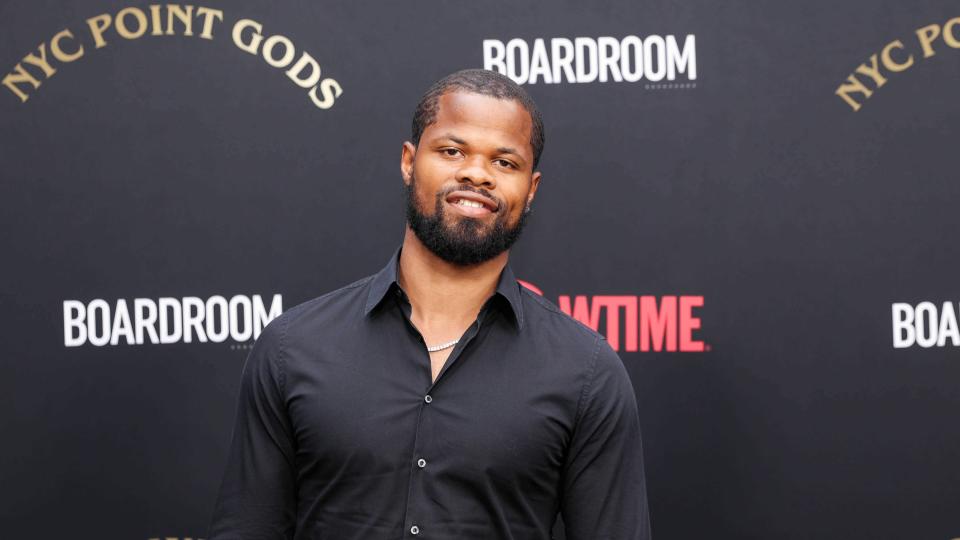
Some don’t have such a clear understanding of their career path when they’re young.
Omar Cook didn’t start thinking seriously about coaching until the final years of a remarkable 21-year pro career.
“In Europe, we have a lot of young guys that either practice with us or play with us,” Cook says.
“Those guys -- and even some guys that have been over there for a few years -- would just asked me different questions about my approach; you know, like, why did I get to practice early? Why did I stay late? Why did I do treatment (the way I do)? Things like that.
“So I kind of became like a mentor for my teammates and it then it just resonated.”
Fast forward a few years, and Cook is on NBA sidelines every night as an assistant coach with the Cavs.
Shawn James certainly didn’t know he’d end up in an NBA front office when he was a young kid in Brooklyn. James didn’t even play basketball in high school.
He only started practicing the game with Morton’s Juice All-Stars after some prodding from some local coaches. That eventually led to a Division I scholarship, a place in the NCAA record books (top 10 in career blocks) and a 10-year career overseas.
One of his former teammates and a former coach had roles with the Jazz’s G League club. They asked James if he would come on as an intern. The 34-year-old father of three took a leap of faith. Today, he manages college scouting and scouts on the pro level for the Jazz.
James, like the other coaches and scouts from the area, have an immense pride in their New York City roots.
“You could take a kid from New York put him anywhere and sit him in a room and he’s gonna be comfortable, he’s gonna be able to adapt, he's gonna be able to learn just because of what he hears and sees on a daily basis (in New York),” James says. “That’s an advantage when you're coming from a city that has the diversity, the culture, the history, (all the characters) . … You can read the room a lot easier because you've done it your whole life.”
There’s another advantage for scouts/coaches/executives from New York City: a strong, valuable network.
“There's a great amount of pride in continuing to keep the influence of our city in the game at every level, grassroots all the way to the NBA,” says former Bishop Loughlin great Mike Boynton, now a top assistant at Michigan. “And guys can lean on each other as we continue to navigate our lives professionally.”
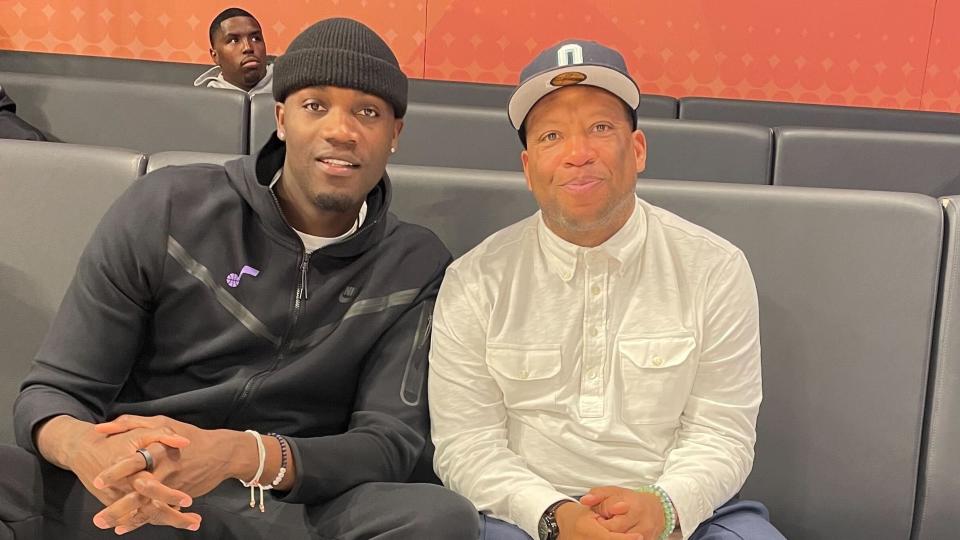
Kyle Neptune was just starting to navigate his post playing career in late spring of 2008. He was going to events with Khalid Green, then a Nets scout and currently an executive at Overtime Elite. He was talking to mentors like AAU titan Gary Charles, Morton and Marchand.
“I told them all that I wanted to get in,” Neptune says.
At the time, Corey Fisher was a sophomore at Villanova. Through Fisher’s recruitment, Marchand and Morton developed a bond with Villanova coaches Pat Chambers and Keith Urgo.
So they thought immediately of the ’Nova guys when Neptune reached out.
“If you have any spots open, we have a great young kid; any job you have, he’ll take,” Marchand recalls telling the coaches.
Within a month, Neptune got a call from Chambers. Villanova wanted to bring him on as a video coordinator. It turned out to be a win for everyone involved.
After two years as a video coordinator, Neptune went to Niagra as an assistant; he then returned to Villanova as an assistant under Jay Wright. In his eight-year stretch as an assistant under Wright, the Wildcats won two national titles.
In 2021, Neptune left Villanova for a head coaching job at Fordham.
Just 20 months later, he returned to ’Nova as head coach following Wright’s retirement.
In Neptune’s first offseason, he added Fisher as a student-athlete development assistant. Fisher, you’ll recall, was the linchpin between Villanova and Neptune’s first coaching job.
“It's almost a full-circle moment with Corey being on staff,” Neptune says. “It’s kind of crazy.”
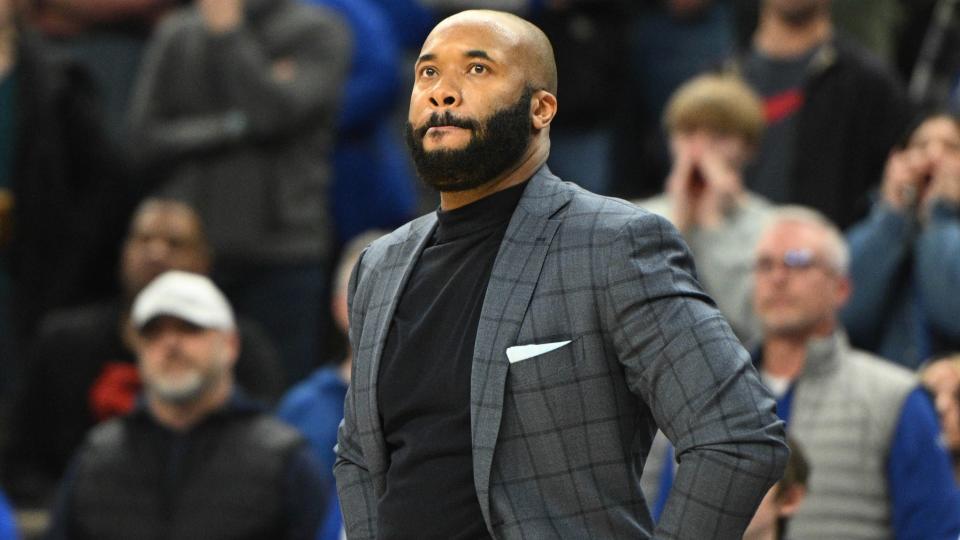
Neptune spent just one full season at Fordham. But his 20-month tenure at Rose Hill made a significant impact on the NYC pipeline. Neptune hired a New York City-born associate head coach (Urgo) and top assistants from the NYC area (Tray Woodall, Ronald Ramon, Tre Morton, Dwan McMillan, Henry Lowe).
For Ramon, coaching at Fordham brought him back to his roots in a number of ways.
He grew up a mile away from the University. His dad was friendly with the school security guards, so father and son would sneak into the gym for basketball workouts. After playing (and starring) at All Hallows HS, the University of Pittsburgh and playing 10 years overseas, Ramon returned to Pitt to start coaching.
Why coaching? Basketball had given Ramon so much; structure, discipline, tools to deal with adversity. He wanted to give those skills to a younger generation, to set them up for future success on and off the court.
“If I can't do that, then I failed you. That's how I see it,” Ramon says. “That's the real coaching, right?
“Basketball is just a tool (for that development).”
That kind of mindset drew Neptune to Ramon. They were connected by mutual friends, a recommendation driven by Marchand.
When Neptune left for Villanova, Urgo took over as head coach. Retaining Ramon and the other NYC-area coaches was an easy decision.
“Every coach recommended by Anton that has excelled,” says Urgo, the 2023 Atlantic-10 Coach of the Year. “I trust him as much as anyone in this business.”
Ramon and the other Fordham coaches may be the next ones through the NYC pipeline. Corey Edwards, an assistant at High Point and the son of the late Dave Edwards -- a legendary New York City guard -- is another young coach to watch. Same goes for Manhattan College’s Anthony Doran, Hofstra’s Serge Clement and Syracuse’s Allen Griffin.
No matter who comes through the pipeline, you can expect it to remain active for years to come.
“We have a plan in place for every single one of those guys,” Marchand says of the Fordham assistants. “We know how hard it is to get to these positions. Now that we're here, we're gonna help as many people as we can.”

